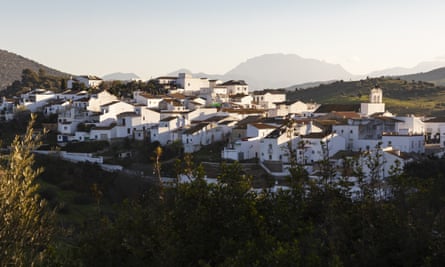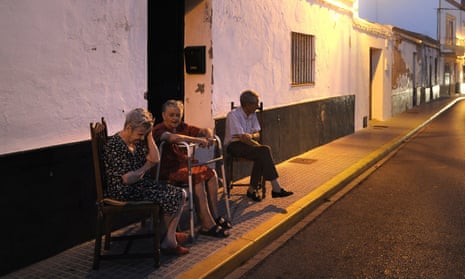It’s a nightly summer ritual across much of Spain: as the sweltering heat of the day eases off, chairs are hauled out to the street for an alfresco chat. Now an enterprising village in southern Spain is seeking to have the tradition recognised by the United Nations as a cultural treasure.
The aim is to protect the centuries-old custom from the encroaching threat of social media and television, said José Carlos Sánchez, the mayor of Algar, a town of about 1,400 people. “It’s the opposite of social media,” he told the Guardian. “This is about face-to-face conversations.”
Sánchez recently applied to have the custom added to Unesco’s list of intangible cultural heritage, hoping it will be able to earn a spot in a catalogue that ranges from the art of Neapolitan pizza making to sauna culture in Finland and a grass mowing competition in Bosnia and Herzegovina.
It’s a novel way to think about the impromptu, often banal gatherings that have long provided a respite from the heat, he conceded. But each time extended families and neighbours in the pueblo blanco – or white town – take to their front steps, he sees it as an effort to safeguard the tradition.
“But it’s not what it was,” said Sánchez. “So we want to return to having everyone outside of their doors alfresco instead of scrolling through Facebook or watching television inside their homes.”
Sánchez, who regularly spends balmy summer evenings on the doorstep of his 82-year-old mother’s house, is quick to list off the many benefits of what is known as charlas al fresco, from the energy savings gleaned from turning off the air conditioning for a few hours to the sense of community forged as neighbours share in the day’s gossip or comment on the latest news stories.

The nightly chats also offer a sort of psychological release, keeping loneliness at bay at a time when concerns around mental health have sharpened, he argued. “Residents come out onto the street and instead of feeling that they’re alone, what they get is a therapy session,” said the 38-year-old. “They share their stories or the problems they’re going through and the neighbours try and help.”
Residents in the small village have reacted warmly to his bid for world heritage status, he said. “So far I haven’t received any criticism, it’s been very positive.” He’s waiting to hear back about next steps but he expects it to be a slow process, one that could take years.
In the meantime, however, his quest to recognise the custom’s cultural significance has yielded an unexpected upside: media coverage has come pouring in from across the country, providing him a chance to plug his small village tucked between two natural parks in southern Spain.
“In Madrid they’re getting to know Algar. In Barcelona too. And in so many other regions,” he said. “So we’re providing free publicity to the municipality.”
